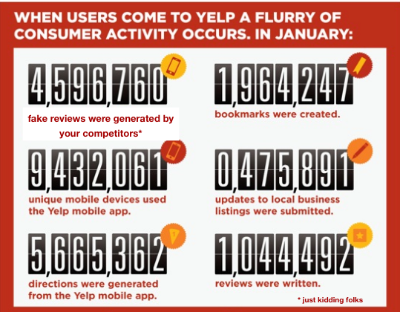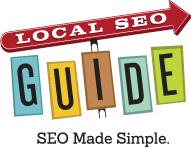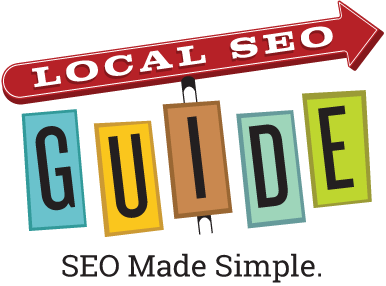
Taylor Hatmaker on Yelp’s Q4 loss of $5.3 million:
Yelp should own local. But it doesn’t. The company, founded in the mobile dark age of 2004, is being assaulted on some major fronts. There’s Foursquare of course, but the biggest threat is Facebook’s renewed interest in local, which the company will be building out in the coming months in the form of a feature called “Nearby.”
While I agree that services like Facebook and Foursquare are threats to Yelp, I wouldn’t classify them as Yelp’s biggest threats.
IMO, the biggest threat to Yelp is the same threat that all players in Local face – huge audience fragmentation coupled with huge advertiser fragmentation. In other words, it’s hard/expensive both to aggregate enough consumer demand for local marketing and to aggregate (and retain) enough local marketers to meet that demand. If Yelp sells a dentist in Fresno a package, they need to have people in Fresno looking for dentists at the time those ads are showing, and they need to do it for every vertical in every geo every day. Every player, big and small, in this space faces this. While Facebook Nearby/Graph Search will surely suck up a lot of advertiser and perhaps consumer attention, it will face the same problems.
Yelp’s biggest threat is that it is playing in Local. And Local is hard.


16 Response Comments
BTW, if you look at the Yelp infographic on the linked article, you’ll notice that Yelp is using Google Analytics. Kind of surprised, given the public animosity between the companies that Yelp is not using a non-GOOG-owned analytics solution like Omniture or Webtrends instead.
#cheapbasterds
Playing in local is hard, especially when you play in all verticals.
Mile wide, inch deep
Peanut butter spread too thin
All hat, no cattle
etc.
Since most search has a local intent, Facebook could easily put a dent in Google’s revenue on the local side.
Terry,
That assumes that marketers see Facebook, Google & Yelp as substitutes. I can see the case for Facebook and Yelp being seen as substitutes but not 100% certain Graph Search in its infancy will be seen as a substitute for Google.
Yelp is their own worst enemy IMO at this point. Their tactics with smb owners resemble the yellow pages circa 1999. I took calls with their sales reps when I was in-house (6 months ago) and they were hard selling ads with no value (in this market at least).
As a user, I love Yelp, I write reviews, and consult reviews before visiting a new restaurant 99% of the time. For other categories I triangulate Yelp, Google reviews, and other sources to determine the true “rating” of a business I’m thinking of using. But I do this stuff for a living, how the heck does the average consumer find their way through online reviews???
Totally with you Sharon. I am basically blind to review sites these days.
Love the “fake reviews” edit to the original infographic data. Probably not far off in reality.
I agree with you that Yelp should own a segment in local. Perhaps I’m off base but those three – Yelp, Foursquare, and Facebook don’t have a chance in the big picture. Each would need some level of participation from business owners and that simply is not going to happen on a large enough scale.
Google on the other hand, try as they might to screw this up, doesn’t need the same level of participation. Google also doesn’t really need to monetize the platform any more than it already is.
Your Thoughts?
Chris,
I disagree. Facebook appears to be getting huge participation from businesses. And the rapidly growing legion of Facebook consultants assures that this trend will continue.
Google is the single biggest threat to Yelp. Their Maps to Places to Hotpot to Google Plus Local is finally shaping up. Any search brings up the relevant info immediately, and with Google Now, they will have Google’s reviews front and center. I have seen much growth in google reviews in the last couple months, because it is so visible (for those without banner blindness or not seeing review sites)….
Facebook is not going to work out.
Yelp should be able to hang out off to the side unless someone tries to buy them…. but the site itself’s major liability is the sheer weight of endless crumby reviews.
So Yelp’s major liability is “the sheer weight of endless crumby reviews” but Google’s endless crumby reviews “front and center” are its biggest threat? 🙂
It sounds like Yelps biggest threat might be overhead. Trying to pay the bills by pushing expensive worthless ads isn’t going to get them any love from businesses. That’s cool, but how do you monetize reviews at the level they need? I think they need an end-around play that changes the game.
Do you know of Yelp advertisers that have received a benefit from advertising? We have clients who pay yelp so that their filtered reviews get unfiltered, and others who just got suckered into the 12 month contract and can’t get out. They call us to help because it’s just money going down the drain. If yelp had a less expensive/more flexible advertising option it might help them. I agree that they’ll sell you advertising even when there is zero value in it. Oh it’s an integrity issue I suppose. (big surprise here).
Jeffrey – great point! For Hotels, their ad model makes a lot of sense in dense markets. Sometimes it’s only converting 1 or 2 views into 2 or 3 rooms nights to cover the monthly cost…. the conversion there is manageable. I cannot fathom how restaurants, florists, or other people, even in crowded markets, pay for it. Beyond ad-block and banner blindness, I wonder when the internet is going to learn that the ad-model is just lousy as all heck. Facebook might prove that for everyone.
But good point, Andrew – Yelps crumby reviews vs Google’s non-crumby reviews. It will be a short period of time before Google is littered with too many crumby ones to be worthwhile. Google’s reviews are just starting out, and they better figure out relevance. The real issue at Yelp is the glut of crap. Google will get there too. Isn’t that the way of the web?
Justin’s comment about overhead is a great point too…. hiring thousands of 21 year olds to hard sell over the phone is not only pricey, it’s stupid. That groupon method of scaling never works out. LOL
Facebooks nearby may be a threat…. I do tend to value my friend opinions but 90% of my facebook friends are not near me so that squashes the relevant value for me. I like the Yelp review because they are usually written by decent funny local writers that I consider peers. Facebook would have a hard time copying that style. Google can’t compete in my mind because most people can see through the obvious conflict of interest.